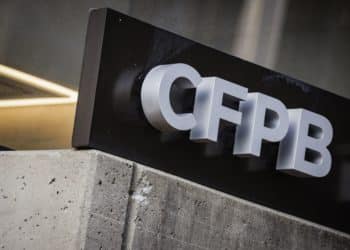3 Tips to Choosing a Niche for Your Bank
 Trying to be a “jack of all trades” is a bad strategy.
Trying to be a “jack of all trades” is a bad strategy.
Megabanks—with their larger technology budgets and access to more resources—can afford to offer a lot of different products and services to a lot of different markets. With more modest technology budgets and fewer resources, community banks don’t have the luxury of taking a shotgun approach but instead need to focus on what they do best and become a leader in a single market.
Simply put, community banks can’t afford to spread themselves too thin.
(For more information on why community banks need a niche, read “Banks Should Choose One Thing and Do It Well.”)
Exploiting your niche sounds good in theory, but most banks struggle with implementing the first step: Defining their niche. Here are three tips to help.
Tip 1. ‘Community Bank’ is Not a Niche
When I ask community banks what they excel at, I hear the same answer time and again: “Well, we’re a community bank.” That is not a niche; the vast majority of consumers don’t even know what a community bank is. And prospective customers searching for a great rate on mortgages or free checking aren’t doing a Google search for “best community bank.”
Another popular answer I hear from bankers is that their bank excels at personalized service. While that may have been a differentiator at one time, technology has leveled the customer service playing field. Sophisticated data analytics now allow larger banks to ‘know’ their customers as well—if not better—than some community banks.
And if a customer does his or her banking online, what difference does it make if the teller can recognize them by name?
Find a different niche, because “community bank” just is not enough.
Examples of niches in banking can range from ESOP lending to “green banks” supporting environmental initiatives, to banks that focus on serving members of the military.
Tip 2. Build on Your Strengths
It’s possible that you already have a deep, specialized knowledge that you can exploit as a niche. Do a skill assessment of your current staff. What do they do well? Do any areas of expertise rise to the top?
Analyze your best customers—keeping in mind that your most profitable customers may not be the ones you think are profitable. You may find that fee-driven accounts with overdrafts are more profitable than those accounts with huge deposits. We worked with one bank that was shocked to discover that profits from their indirect auto lending business were much less than they estimated.
Look at the areas of your bank that are growing the fastest. Look at your market. Is it urban, suburban, or rural? Are market demographics changing due to immigration or other factors?
The answers to these questions will help you define your niche.
Tip 3. Don’t Get Carried Away by What’s Hot
Just because a market is “hot” doesn’t mean that it’s the right niche for your bank. Some community banks decided to jump into commercial and industrial (C&I) lending because it was hot. Some of these banks are no longer in business.
Others chased small business lending, thinking that it’s the same as consumer lending. While there are definitely synergies between consumer lending and small business lending, small business lending is more closely related to asset-based lending. Is your bank set up to manage loans in which the collateral is cash flow, inventory, and accounts receivables?
Wealth management is another area that is hot, but profitability requires scale—something that most community banks won’t be able to achieve.
Before you consider chasing a market, decide whether or not your bank can really support the business. Take a look at your infrastructure, technology, talent, and processes.
When You Find It, Run With It
Once you define your niche, separate yourself from other banks by being first to market with products and services in your area of specialty. Funnel your budget and resources into your niche and be content to be a follower in everything else.
Remember that banks that are successful during a downturn have a niche that they can fall back on when times are hard. Specialization is key to survival. If you are good at everything but not outstanding at anything, your days are numbered.
Paul Schaus is the president, chief executive officer and founder of CCG Catalyst, a bank consulting firm. Contact him at consultant@ccg-catalyst.com or 1-800-439-8710.











